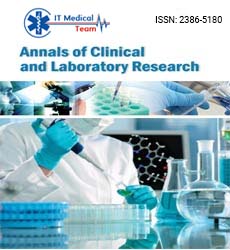Uqbah Iqbal*
Faculty of Social Science and Humanities, UKM, Bangi Selangor, Malaysia
*Corresponding Author:
Uqbah Iqbal
Faculty of Social Sciences and Humanities
UKM 43650, Bangi Selangor, Malaysia
Tel: 60389215555
Email: uqbah@siswa.ukm.edu.my
Received date: 15 January 2017; Accepted date: 20 January 2017; Published date: 24 January 2017
Citation: Iqbah U. Early Reading Skills Malay Preschool. Ann Clin Lab Res. 2017, 5:1. doi:10.21767/2386-5180.1000148
Activities such as listening, reading and writing are a process that fosters early literacy for children. Parents, adults and the environment can help children to master speed reading skills. Reading is a complex process that involves the mind, perception, linguistics and psychology. The initial experience of reading literacy requires an approach that is meaningful, concrete and involves children actively as reported by Morrow in 1993. Therefore, the initial stage in the process of reading skills of children is early reading skill levels.
Opinion
Written by Naimah Yusoff, Nor Hashimah Hashim and Hashim Othman, early reading skills among preschool children is a basic skills before they stepped into the realm of formal education in primary school. Weakness children in early reading skills is worrying parents and teachers. Problem reading skills at an early stage will affect the overall learning process. This book discusses the issues and aspects of reading skills in the early stages of reading, as well as teaching methods that can be used by teachers, dedicated to the teaching of early reading Malay language. Discussion and review of this book is based on the theory and the results of author's own empirical research and scientific. A variety of teaching methods is discussed and can be customized according to the needs of preschool children. In this book, two teaching methods is reviewed in detail by the author. The rules were Vocal Structured Control Method and methods alphabet. Preschool teachers need to make a wise choice of teaching methods according to the needs of children. The combination of the understanding of a concept by means, followed by appropriate training will facilitate the learning process early childhood reading.
The discussion in this book is divided into chapters to facilitate the reader's understanding. One aspect that was discussed was reading in general, talks about the theory and approach, and application methods of teaching reading skills early in the learning process. Examples of related modules early reading skills, Reading Readiness Test and Test of Early Reading Skills included facilitating and assisting teachers in the teaching of reading skills. Hopefully this contribution may be utilized preschool teachers in educating children to be children who are knowledgeable and successful.
Activities such as listening, reading and writing are a process that fosters early literacy for children. Parents, adults and the environment can help children to master speed reading skills. Reading is a complex process that involves the mind, perception, linguistics and psychology. The initial experience of reading literacy requires an approach that is meaningful, concrete and involves children actively as reported by Morrow in 1993. Therefore, the initial stage in the process of reading skills of children is early reading skill levels. There are various approaches and methods that can be used by teachers to assist the development of early reading skills either at the preschool or elementary school. From the pedagogical aspect, generally there are two main theories relating to science education and psychology, the theory of Cognitive and Behaviorist theories. Approach in teaching reading approaches were categorized as Traditional and Alternative Approaches. In addition, there are various methods related to theories and approaches. The effectiveness of the approach and methods of teaching reading skills in the early stages is often a debate among educators, researchers and policy shapers. Teachers who teach reading and science education and psychology, namely the theory of Cognitive and Behaviorist theories. Approach in teaching reading approaches were categorized as Traditional and Alternative Approaches. In addition, there are various methods related to theories and approaches. The effectiveness of the approach and methods of teaching reading skills in the early stages is often a debate among educators, researchers and policy shapers. Teachers who teach early reading at pre-school and primary school are always blamed.
This book discusses the impact of alternative methods and approaches that characterized traditional approach, as well as elements related to the teaching of reading skills at the beginning of the reading of preschool children. The effectiveness of an approach or methodology is interconnected between teacher competence and needs of children. Therefore, teachers should wisely choose methods of teaching early reading skills as appropriate and needs of preschool children. At present, various methods of teaching early reading skills introduced either from the Ministry of Education, preschool or even individuals. In discussions relating to methods of teaching early reading skills, the author tries to review of the theoretical aspects of language teaching and learning, language development, children's readiness to read, and sample tests can be carried out by teachers. Generally, the discussion in this book is based on research that was conducted by the author among pre-school students in the state. Most of the data used refers to the question of literacy rate in Sabah state. However, methods of teaching early reading skills have been introduced and applied in preschool centers in Peninsular Malaysia as reported by Naimah and Asry, in 1998 and 2001. The aim is to help improve reading skills early and reduce the rate of literacy is not among school children in Malaysia in general.
18222






